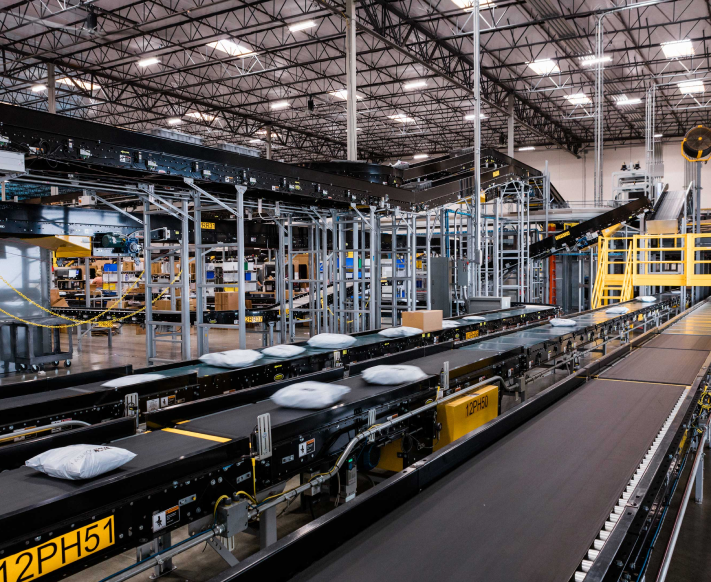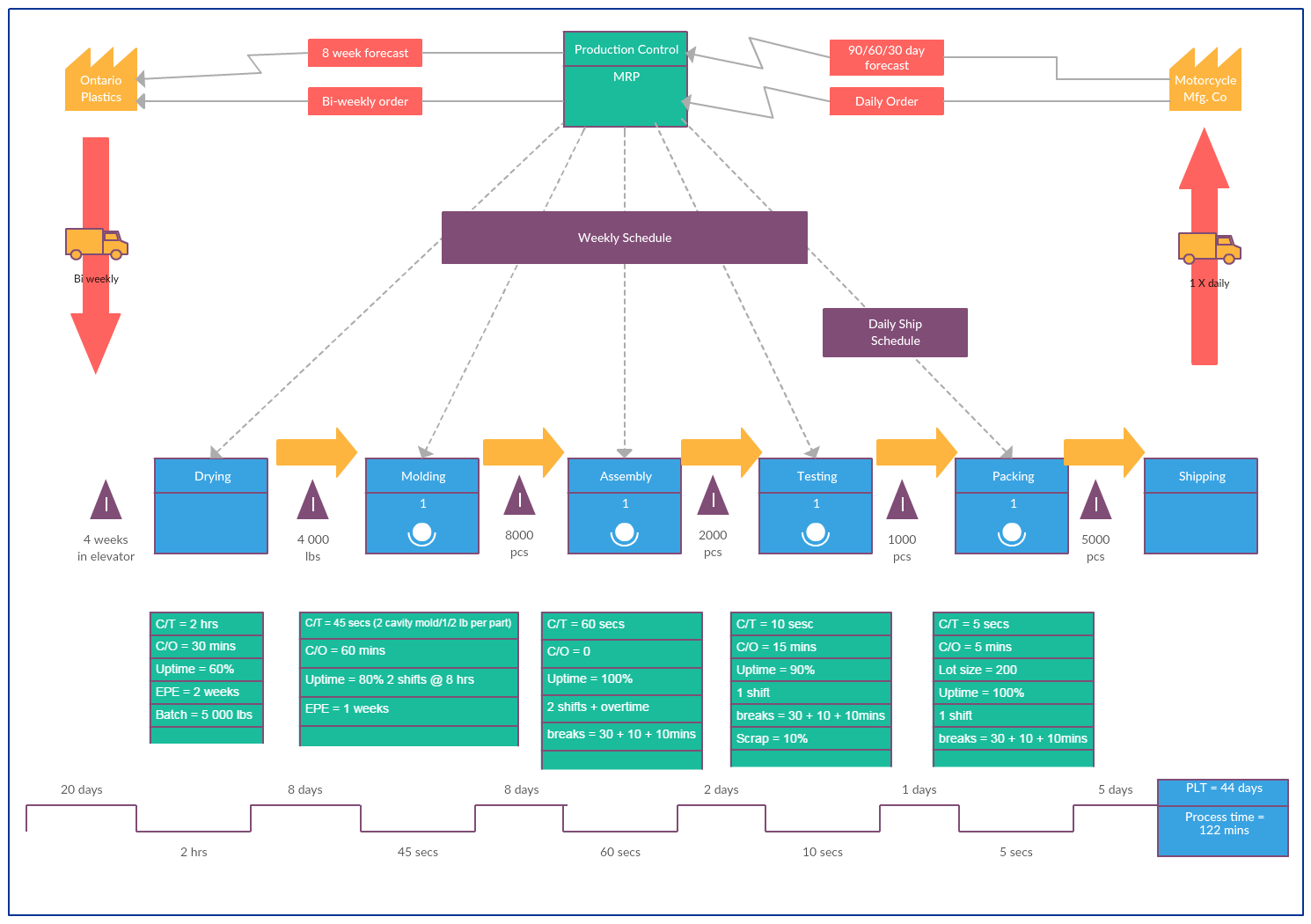
Are you looking for New Jersey logistics jobs? These jobs come in all kinds of settings and require different skills, regardless of whether you are looking to become a manager or start your own business. It is preferred to have a bachelor's. You will need the following qualifications to work as a logistic manager. These skills include the ability work independently and to solve problems. You should have a positive attitude and be a natural problem-solver.
Bachelor's degrees are required
You will need to have a bachelor's degree from an accredited university and 4+ years of experience in logistics. Additionally, you must demonstrate organizational and time-management skills. Additionally, you will need to have excellent communication skills and fluency in English. You should also be able to analyze data and have proven leadership skills.

Many of these positions require a Bachelor's Degree in Logistics in New Jersey. Although most jobs in this industry are low-skilled, you can still make a lot by applying your skills to other industries. New Jersey has many middle skilled jobs that require people with specialized training. NJCU's Center for Workforce and Community Development offers one of these middle-skill training programs.
Employers may consider working in logistics if you have prior experience. You can be more marketable with prior experience and improve your chances of getting hired. If you have a bachelor's in logistics, you may be able to get a job as a freight agent or customer service representative. Higher-level jobs in logistics, such as those in management, will become available if you have more experience and are able to demonstrate your skills. Furthermore, you could also pursue postsecondary education in logistics like teaching or research.
It is preferable to have a bachelor’s degree
A number of logistics positions require a bachelor’s level degree. Often, a bachelor’s in a related field is preferred. Because they can handle complex supply chains, and understand transportation laws, most employers prefer applicants who hold a bachelor’s degree. Additionally, students who have completed a bachelor’s degree in logistics are able to gain a broad perspective on the field, which will help them expand their professional networks. A customer service representative or freight agent could be an entry-level position in logistics. Management positions could be available for those who have advanced credentials and training. Research, consulting, and teaching are all options for higher-level logistics jobs.
A bachelor's degree in logistics is preferred by most employers, although an associate's degree may also qualify. In certain cases, relevant work experience may also substitute for education. Job seekers can also get certifications in specific industry fields, such as data analysis or warehouse management. A bachelor's degree in logistics is preferred in New Jersey. A bachelor's degree in logistics will give you the necessary knowledge to understand the inner workings of a supply chain. Numerous companies, especially those who deal with large-scale transactions, require a bachelor’s degree in logistic.

For a career in Industrial Engineering, you will need to have a bachelor’s degree along with experience in manufacturing and industrial facilities. Additionally, you will need to be able and able to communicate with employees. An Industrial Engineer must have at minimum six years of relevant experience, and be familiar working conditions in industries similar to yours.
FAQ
What are the 7 Rs of logistics.
The 7R's of Logistics is an acronym for the seven basic principles of logistics management. It was developed by the International Association of Business Logisticians (IABL) and published in 2004 as part of its "Seven Principles of Logistics Management" series.
The following letters make up the acronym:
-
Responsive - ensure all actions are legal and not harmful to others.
-
Reliable: Have faith in your ability or the ability to honor any promises made.
-
Use resources effectively and sparingly.
-
Realistic – Consider all aspects, including cost-effectiveness as well as environmental impact.
-
Respectful - treat people fairly and equitably.
-
Reliable - Find ways to save money and increase your productivity.
-
Recognizable provides value-added products and services to customers
What skills are required to be a production manager?
To become a successful production planner, you need to be organized, flexible, and able to multitask. Effective communication with clients and colleagues is essential.
How can manufacturing avoid production bottlenecks
The key to avoiding bottlenecks in production is to keep all processes running smoothly throughout the entire production cycle, from the time you receive an order until the time when the product ships.
This includes planning for both capacity requirements and quality control measures.
Continuous improvement techniques like Six Sigma are the best way to achieve this.
Six Sigma can be used to improve the quality and decrease waste in all areas of your company.
It is focused on creating consistency and eliminating variation in your work.
Statistics
- According to a Statista study, U.S. businesses spent $1.63 trillion on logistics in 2019, moving goods from origin to end user through various supply chain network segments. (netsuite.com)
- Job #1 is delivering the ordered product according to specifications: color, size, brand, and quantity. (netsuite.com)
- It's estimated that 10.8% of the U.S. GDP in 2020 was contributed to manufacturing. (investopedia.com)
- In 2021, an estimated 12.1 million Americans work in the manufacturing sector.6 (investopedia.com)
- In the United States, for example, manufacturing makes up 15% of the economic output. (twi-global.com)
External Links
How To
How to use Lean Manufacturing in the production of goods
Lean manufacturing (or lean manufacturing) is a style of management that aims to increase efficiency, reduce waste and improve performance through continuous improvement. It was first developed in Japan in the 1970s/80s by Taiichi Ahno, who was awarded the Toyota Production System (TPS), award from KanjiToyoda, the founder of TPS. Michael L. Watkins published the original book on lean manufacturing, "The Machine That Changed the World," in 1990.
Lean manufacturing refers to a set of principles that improve the quality, speed and costs of products and services. It is about eliminating defects and waste from all stages of the value stream. The five-steps of Lean Manufacturing are just-in time (JIT), zero defect and total productive maintenance (TPM), as well as 5S. Lean manufacturing eliminates non-value-added tasks like inspection, rework, waiting.
Lean manufacturing improves product quality and costs. It also helps companies reach their goals quicker and decreases employee turnover. Lean manufacturing can be used to manage all aspects of the value chain. Customers, suppliers, distributors, retailers and employees are all included. Lean manufacturing is widely used in many industries. Toyota's philosophy is the foundation of its success in automotives, electronics and appliances, healthcare, chemical engineers, aerospace, paper and food, among other industries.
Lean manufacturing is based on five principles:
-
Define Value: Identify the social value of your business and what sets you apart.
-
Reduce Waste - Remove any activity which doesn't add value to your supply chain.
-
Create Flow: Ensure that the work process flows without interruptions.
-
Standardize & simplify - Make processes consistent and repeatable.
-
Build relationships - Develop and maintain personal relationships with both your internal and external stakeholders.
Lean manufacturing isn’t new, but it has seen a renewed interest since 2008 due to the global financial crisis. Many companies have adopted lean manufacturing methods to increase their marketability. Economists think that lean manufacturing is a crucial factor in economic recovery.
Lean manufacturing has many benefits in the automotive sector. These include improved customer satisfaction, reduced inventory levels, lower operating costs, increased productivity, and better overall safety.
Any aspect of an enterprise can benefit from Lean manufacturing. This is because it ensures efficiency and effectiveness in all stages of the value chain.
There are three main types of lean manufacturing:
-
Just-in Time Manufacturing: This lean manufacturing method is commonly called "pull systems." JIT is a method in which components are assembled right at the moment of use, rather than being manufactured ahead of time. This approach is designed to reduce lead times and increase the availability of components. It also reduces inventory.
-
Zero Defects Manufacturing (ZDM),: ZDM is a system that ensures no defective units are left the manufacturing facility. Repairing a part that is damaged during assembly should be done, not scrapping. This is true even for finished products that only require minor repairs prior to shipping.
-
Continuous Improvement (CI),: Continuous improvement aims improve the efficiency and effectiveness of operations by continuously identifying issues and making changes to reduce waste. Continuous Improvement (CI) involves continuous improvement in processes, people, tools, and infrastructure.